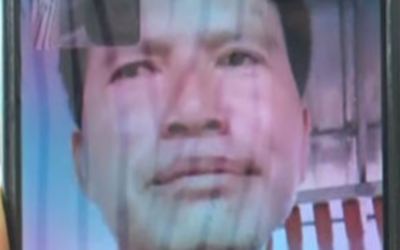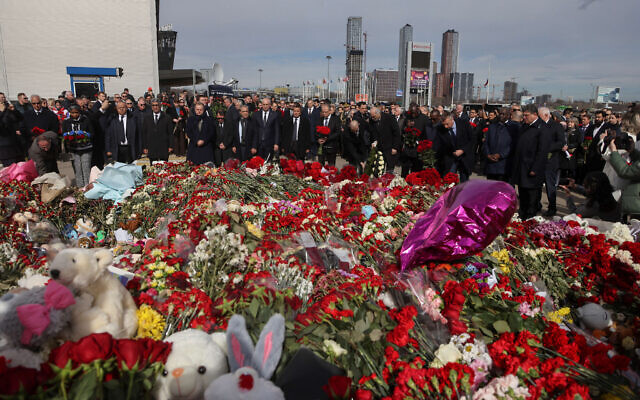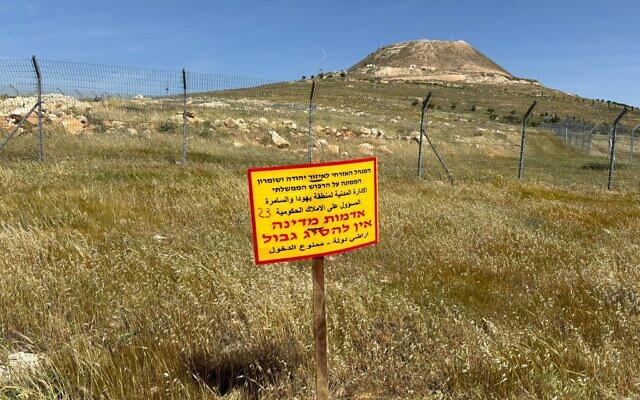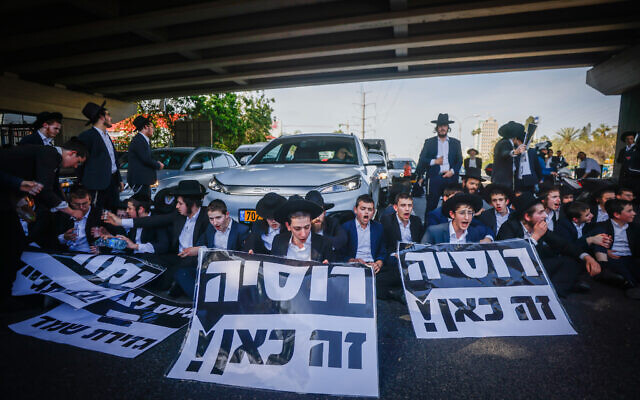On April 1, 2024, an Israeli airstrike on the Iranian embassy in Damascus killed two generals and five other officers from Iran's Islamic Revolutionary Guard Corps (IRGC). The strike was part of Israel's ongoing campaign against Iran and its proxies. According to reports, the IRGC commander Mohammad Reza Zahedi was among those killed in the attack. This marks a significant blow for Iran as it continues to manage various fronts against Israel even as it takes losses in other places.
Israel Strikes Iranian Embassy in Damascus, Kills Two Generals and Five Officers from IRGC
Damascus, Syria IraqIRGC commander Mohammad Reza Zahedi was among those killed
Israel carried out an airstrike on the Iranian embassy in Damascus
Two generals and five officers from IRGC were killed in the attack









Confidence
90%
No Doubts Found At Time Of Publication
Sources
91%
Israeli strike on Iran's consulate in Syria killed 2 generals and 5 other officers, Iran says
The Associated Press News Monday, 01 April 2024 16:14Unique Points
- Iranian Revolutionary Guards commander Mohammad Reza Zahedi was reportedly killed in an Israeli airstrike on the Iranian embassy in Damascus.
- Israel has stepped up strikes against Iran and its proxies since the Hamas attack on Israel in October, hitting both Lebanese-backed Hezbollah terror groups as well as IRGC targets.
- Iran's consulate was flattened in the strike, according to reports which noted that Syrian and Iranian media had blamed the carnage on an Israeli air strike.
Accuracy
- Iranian Revolutionary Guards commander Mohammad Reza Zahedi was reportedly killed in an Israeli airstrike on the Iranian embassy in Damascus.
- Israel has stepped up strikes against Iran and its proxies since the Hamas attack on Israel in October, hitting both Lebanese-backed Hezbollah terror groups as well as IRGC targets.
- Iran's consulate was flattened in the strike, according to reports which noted that Syrian and Iranian media had blamed the carnage on an Israeli air strike.
- Israel declined to comment on the apparent strike, Reuters reported with an Israeli military spokesperson telling outlet that it does not comment on reports in foreign media.
- Senior leader of Iran's Islamic Revolutionary Guard Corps (IRGC) was killed in the same attack as several other diplomats.
- Iranian state television reported that multiple diplomats have been killed in the strike, according to Reuters.
- Israel escalated against Iran by targeting an official government building and telling Israel that it will not continue with proxy game so commonly played by Iran.
- Khamenei's policies over the years reflect cowardice. The pattern of reaction is such that he escalates when he feels that the other side is afraid of him, and backs down when the other side shows deterrence.
- Israel has significant reach as evidenced by this strike which signals to Israel's enemies including Hamas, Hezbollah, Palestinian Islamic Jihad, Iran and others hostile actors that no one is safe.
- The Israeli military reached a serious organizational blow and disrupted the IRGC's ability to mobilize plan carry out effective attacks while also destabilizing psyche of Iranian leadership and their proxies.
- Iran is unlikely to mount any significant response as Hezbollah, Iran, and other potential entities that could respond don't want a full-scale war with Israel.
- Hezbollah fighters attend the funeral of their commander Wissam al-Tawil in Lebanon show longstanding schisms in small country over Hezbollah now amplified by militant group role in Lebanon-Israel border clashes and fears that an already crisis hit Lebanon could be dragged into all out war.
- Joe Truzman, a senior research analyst at the Foundation for Defense of Democracies (FDD) and expert on Iran and its proxies, warned that this possible shift in tactics suggests conflict between Israel and Iran may enter new dangerous phase.
Deception (90%)
The article is deceptive in several ways. Firstly, it states that Iranian officials claim two generals and five officers were killed in the Israeli airstrike on their consulate in Syria. However, there are no quotes from any of these officials to back up this statement. Secondly, the article claims that Israel has grown increasingly impatient with daily exchanges of fire with Hezbollah militants based in Lebanon and warned of a full-fledged war. This is not supported by any evidence or quotes from Israeli officials. Thirdly, the article states that Iranian-backed Houthi rebels in Yemen have been launching long-range missiles toward Israel, including on Monday. However, there are no details about these alleged attacks and their impact on Israel.- The article claims that two generals and five officers were killed in the Israeli airstrike on Iran's consulate in Syria. However, there are no quotes from any of these officials to back up this statement.
Fallacies (100%)
None Found At Time Of Publication
Bias (85%)
The article reports that an Israeli airstrike killed two Iranian generals and five officers in Syria. The author does not provide any context or background information on the conflict between Israel and Iran. Additionally, the author uses language that dehumanizes the victims of the attack by referring to them as 'military officials' rather than individuals with families and loved ones. Furthermore, there is no evidence provided for claims made in the article such as Iran supporting militant groups fighting Israel or Hamas being backed by Iran.- Hamas is also backed by Iran
- Iran supports militant groups fighting Israel
- The airstrike killed two Iranian generals and five officers
Site Conflicts Of Interest (100%)
None Found At Time Of Publication
Author Conflicts Of Interest (0%)
None Found At Time Of Publication
65%
Iran not likely to retaliate after alleged Israeli strike: ‘Not ready’
Fox News Media Michael Lee Tuesday, 02 April 2024 11:09Unique Points
- Iranian Revolutionary Guards commander Mohammad Reza Zahedi was reportedly killed in an Israeli airstrike on the Iranian embassy in Damascus.
- Israel has stepped up strikes against Iran and its proxies since the Hamas attack on Israel in October, hitting both Lebanese-backed Hezbollah terror groups as well as IRGC targets.
- Iran's consulate was flattened in the strike, according to reports which noted that Syrian and Iranian media had blamed the carnage on an Israeli air strike.
- Israel declined to comment on the apparent strike, Reuters reported with an Israeli military spokesperson telling outlet that it does not comment on reports in foreign media.
- Senior leader of Iran's Islamic Revolutionary Guard Corps (IRGC) was killed in the same attack as several other diplomats.
- Iranian state television reported that multiple diplomats have been killed in the strike, according to Reuters.
- Israel escalated against Iran by targeting an official government building and telling Israel that it will not continue with proxy game so commonly played by Iran.
- Khamenei's policies over the years reflect cowardice. The pattern of reaction is such that he escalates when he feels that the other side is afraid of him, and backs down when the other side shows deterrence.
- Israel has significant reach as evidenced by this strike which signals to Israel's enemies including Hamas, Hezbollah, Palestinian Islamic Jihad, Iran and others hostile actors that no one is safe.
- The Israeli military reached a serious organizational blow and disrupted the IRGC's ability to mobilize plan carry out effective attacks while also destabilizing psyche of Iranian leadership and their proxies.
- Iran is unlikely to mount any significant response as Hezbollah, Iran, and other potential entities that could respond don't want a full-scale war with Israel.
- Hezbollah fighters attend the funeral of their commander Wissam al-Tawil in Lebanon show longstanding schisms in small country over Hezbollah now amplified by militant group role in Lebanon-Israel border clashes and fears that an already crisis hit Lebanon could be dragged into all out war.
- Joe Truzman, a senior research analyst at the Foundation for Defense of Democracies (FDD) and expert on Iran and its proxies, warned that this possible shift in tactics suggests conflict between Israel and Iran may enter new dangerous phase.
Accuracy
- Iran is unlikely to mount any significant response as Hezbollah, Iran, and other potential entities that could respond don't want a full-fledged war with Israel.
Deception (50%)
The article is deceptive in several ways. Firstly, it states that Iran is not likely to respond directly against the Jewish state but rather use its proxies to do the job. However, this statement contradicts itself as it reports that a senior IRGC commander was killed in an Israeli airstrike on the Iranian embassy in Damascus which implies direct retaliation from Iran. Secondly, it states that Israel has stepped up strikes in Syria and on Iranian-backed targets since the Hamas attack on Israel in October, but fails to mention any evidence of these attacks or their impact. Thirdly, it quotes experts who claim that Khamenei's policies reflect cowardice and he escalates when he feels that the other side is afraid of him which contradicts his own statement about Iran not responding directly against the Jewish state. Lastly, it reports on a strike by Israel in Damascus but fails to mention any evidence or sources for this claim.- The article states that Iran is not likely to respond directly against the Jewish state but rather use its proxies to do the job. However, this statement contradicts itself as it reports that a senior IRGC commander was killed in an Israeli airstrike on the Iranian embassy in Damascus which implies direct retaliation from Iran.
- The article states that Israel has stepped up strikes in Syria and on Iranian-backed targets since the Hamas attack on Israel in October, but fails to mention any evidence of these attacks or their impact.
Fallacies (80%)
The article contains several examples of an appeal to authority fallacy. The author cites the opinions and statements of multiple experts without providing any evidence or context for their claims. Additionally, there are instances where the author uses inflammatory rhetoric to make a point rather than presenting facts in a neutral manner.- Bill Roggio, managing editor of Long War Journal, told Fox News Digital that he expects the Iranians to respond.
Bias (80%)
The author has a clear bias towards Israel and its actions. The article portrays the Israeli strike as necessary and justified in response to Iranian aggression, while downplaying any potential harm or consequences of such an action. The author also uses language that demonizes Iran and its proxies, further perpetuating this bias.- I expect the Iranians to respond
- Israel has stepped up strikes in Syria and on Iranian-backed targets since October 2018 attack on Gaza, hitting both Lebanon's Hezbollah terror groups as well as IRGC targets.
- Khamenei's policies over the years reflect cowardice. The Iranian pattern of reaction is such that he escalates when he feels that the other side is afraid of him, and backs down when the other side shows deterrence.
- The Israelis are not ready for a direct confrontation with the Jewish state
Site Conflicts Of Interest (100%)
None Found At Time Of Publication
Author Conflicts Of Interest (0%)
None Found At Time Of Publication
82%
Iran’s Khamenei: Israel will be punished, made to regret Damascus strike
The Times of Israel Tuesday, 02 April 2024 11:10Unique Points
- Iran's Supreme Leader, Ayatollah Ali Khamenei, has vowed to punish Israel for its recent strike on targets in Syria and make it regret the attack.
- The Times of Israel is a daily news website that provides coverage of events related to Israel and the Middle East.
Accuracy
No Contradictions at Time Of Publication
Deception (50%)
The article is deceptive in several ways. Firstly, the title implies that Khamenei has made a statement about Israel being punished and regretting its actions in Damascus when no such statement was actually made. Secondly, the body of the article contains multiple instances of sensationalism and selective reporting to support a particular narrative.- Iran's Khamenei: Israel will be punished, made to regret Damascus strike
- podcasts
Fallacies (85%)
The article contains an appeal to authority fallacy by citing the statement of Iran's Supreme Leader Ayatollah Ali Khamenei without providing any evidence or context. The author also uses inflammatory rhetoric when describing Israel as being punished and made to regret its actions in Damascus.- podcasts
- Those we have lost
Bias (85%)
The article contains a statement from Iran's Supreme Leader Ayatollah Ali Khamenei that Israel will be punished and made to regret its actions in the Syrian civil war. This is an example of religious bias as it reflects the Islamic belief in divine retribution.- podcasts The Times of Israel Daily Edition Free to Your Inbox By signing up, you agree to our terms You hereby accept The Times of Israel Terms of Use and Privacy Policy, and you agree to receive the latest news & offers from The Times of Israel and its partners or ad sponsors. Those we have lost Those we have lost Those we have lost Those we have lost Those we have lost those who were killed in Syria's civil war.
Site Conflicts Of Interest (100%)
None Found At Time Of Publication
Author Conflicts Of Interest (0%)
None Found At Time Of Publication
76%
Airstrike in Damascus Kills Several Top Iranian Commanders, Iran Says
The Name Of The NZ Prefix. I PWA NZI.P.Was Dropped. Farnaz Fassihi, Monday, 01 April 2024 09:09Unique Points
- At least seven Iranian officers were killed in the strike.
- Israel and Hamas went to war in October 2021
- Mohamad Reza Zahedi oversaw Quds Force's covert military operations in Syria and Lebanon.
- Gen. Mohammad Hadi Haj Rahimi was a deputy commander of Quds Forces in Lebanon and Syria, second-in-command to General Zahedi.
- Hossein Aman Allahi was responsible for the Quds Force's military operations in the region.
Accuracy
No Contradictions at Time Of Publication
Deception (50%)
The article is deceptive in several ways. Firstly, the title implies that Iranian commanders were killed by an airstrike when in fact they were killed by Israeli warplanes. Secondly, the author quotes sources who are not disclosed and therefore cannot be verified for their credibility. Thirdly, there is no evidence to support any of the claims made about Israel's involvement in this attack.- The title implies that Iranian commanders were killed by an airstrike when in fact they were killed by Israeli warplanes.
Fallacies (80%)
The article contains several fallacies. The first is an appeal to authority when it states that the Israeli military declined to comment on the strike but four Israeli officials spoke about it. This implies that their statements are authoritative and should be taken as fact without question.- > At least seven officers overseeing Iran's covert operations in the Middle East were killed in Damascus on Monday, when Israeli warplanes struck part of the Iranian Embassy complex in the Syrian Capital, according to a statement by Iran's Revolutionary Guards. <br> > The strike killed three generals in Iran's Quds Force, the external military and intelligence service of the Islamic Revolutionary Guards Corps, and four other officers, the Corps said.
- The Israeli military declined to comment on the strike but four Israeli officials spoke about it.
Bias (85%)
The article contains several examples of religious bias. The author uses language that dehumanizes Iranian commanders and portrays them as evil figures who are responsible for the deaths of innocent people in Gaza. Additionally, the use of phrases such as 'shadow war' perpetuates a negative stereotype about Iran and its actions.- General Zahedi oversaw the Quds Force's covert military operations in Syria and Lebanon.
- The strike killed three generals in Iran's Quds Force
Site Conflicts Of Interest (100%)
None Found At Time Of Publication
Author Conflicts Of Interest (100%)
None Found At Time Of Publication
69%
Unique Points
- The death of IRGC commander Mohammad Reza Zahedi in an airstrike in Damascus represents the end of an era for Iran.
- Zahedi is one of four key operatives and allies of Iran who have been killed recently, leaving only Hezbollah leader Hassan Nasrallah alive.
- Iran may be losing its grip on Syria as its IRGC chain of command there suffers losses, symbolized by the photo that has been circulating on social media which shows Zahedi, former IRGC Quds Force commander Qasem Soleimani, former Hezbollah leader Imad Mughniyeh and others.
- Iran continues to manage various fronts against Israel even as it takes losses in other places.
Accuracy
- The loss of Zahedi is being watched in the region as it shows how a whole generation of key operatives and allies have been killed.
Deception (50%)
The article is deceptive in several ways. Firstly, the author claims that Zahedi's death marks the end of an era for Iran's commanders when it fact there have been many other losses before this one. Secondly, the author uses a photo to symbolize how a whole generation of key operatives and allies of Iran have been killed which is misleading as not all those in the photo are dead. Thirdly, the article claims that Zahedi was killed in an Israeli air strike on Iran's consulate when it fact he was killed next to the building where his military headquarters were located. Fourthly, the author uses a quote from Al-Ain media which is not reliable as they have been known for spreading false information before.- The article claims that Zahedi's death marks the end of an era for Iran's commanders when it fact there have been many other losses before this one. For example, in December 2023, IRGC commander Razi Moussavi was also killed in Syria.
- The article claims that Zahedi was killed in an Israeli air strike on Iran's consulate when it fact he was killed next to the building where his military headquarters were located. The author uses a quote from Al-Ain media which is not reliable as they have been known for spreading false information before.
- The author uses a photo to symbolize how a whole generation of key operatives and allies of Iran have been killed which is misleading as not all those in the photo are dead. The photo shows Zahedi, former IRGC Quds Force commander Qasem Soleimani, former Hezbollah leader Imad Mughniyeh, Hezbollah leader Hassan Nasrallah and former IRGC commander Ahmed Kazemi.
Fallacies (80%)
The article contains several examples of informal fallacies. The author uses an appeal to authority by stating that Iran has lost key operatives and allies in the region without providing any evidence or context for this claim. Additionally, the author makes a false dilemma by suggesting that Iran's loss of Zahedi is symbolic on a wider level because it shows how Iran may be losing its grip on Syria as its IRGC chain of command there suffers losses. This statement ignores other factors that could contribute to this perceived loss of control, such as political and economic instability in the region. The author also uses inflammatory rhetoric by stating that Iran operates like a mafia in the region, which is an exaggeration and not supported by evidence.- The death of Zahedi follows a series of losses for Iran
- Iran has blamed Israel for the attack. He was killed in an airstrike on a building next to the Iranian consulate.
Bias (100%)
None Found At Time Of Publication
Site Conflicts Of Interest (50%)
None Found At Time Of Publication
Author Conflicts Of Interest (50%)
The author has a conflict of interest on the topic of Islamic Revolutionary Guard Corps (IRGC) as they have written about Qasem Soleimani and Imad Mughniyeh who were both members of IRGC. The article also mentions Hezbollah which is an organization that Iran supports, indicating a potential financial or ideological tie between the author and Iran.- The article mentions Qasem Soleimani as being killed by US forces in 2019. Soleimani was a high-ranking member of IRGC.